Defective medical device claims seek compensation for the effects of having one inserted in your body that could do you harm. You claim for the effects of the defective medical equipment on your life today and in the future.
A medical device could be a pacemaker, a stent, a knee or hip joint, a contraceptive device, or an implant in the ear. You have a medical device fitted to improve your health and your life, but a defective medical device may harm you and have a serious impact on your life.
You claim for the effects of the defective medical device in a medical negligence claim. A medical professional owes you a duty of care when treating you, if they breach that duty of care, causing you harm, it could be medical negligence.
A No Win No Fee medical negligence solicitor can handle your defective medical device claim and get you the compensation you deserve.
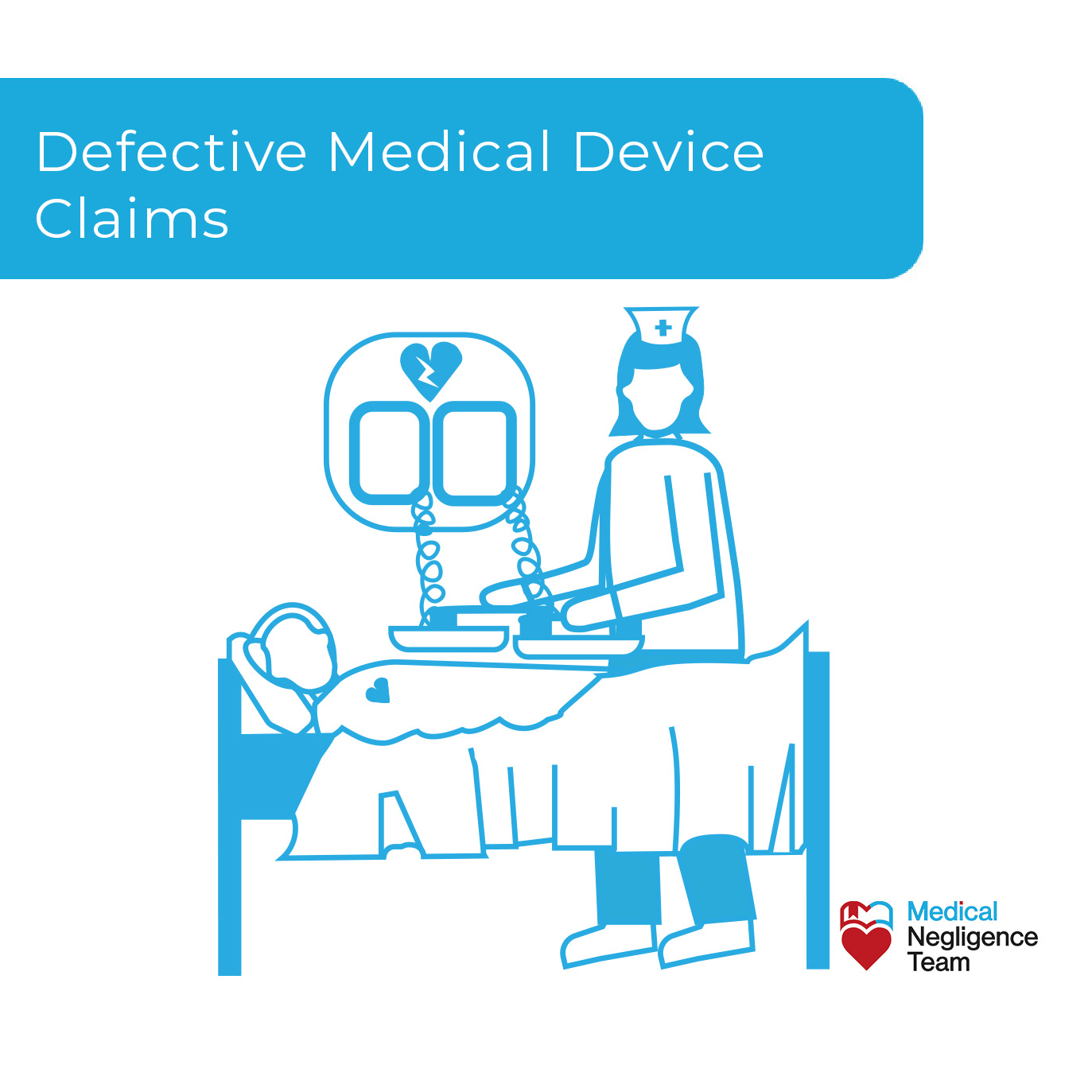
Table of Content
What is a defective medical device claim?
A defective medical device claim is for the injury you suffer due to the medical negligence of fitting you with a faulty stent, pacemaker, or replacement joint. You make the medical negligence claim for the effects on your health and the financial effects on your life and that of your family.
A defective medical product may be a pacemaker that does not operate properly, a cochlear implant that does not improve hearing or a stent that fails to open the artery as designed.
The defective medical device may not operate as planned or could be the wrong size or type for your body. If you suffer due to a defective medical device, you may have a compensation claim for its effects on your health.
The Medical Negligence Team, No Win No Fee solicitor, can look at your case and see if you have a valid compensation claim for the defective medical device.
Common claims for a Defective Medical Device
Common claims for a defective medical device range from shock from a faulty pacemaker to pain from an ill-fitting knee joint to the defibrillator that fails to work when needed. You or a loved one could suffer from the effects of the defective medical device and may have a claim for compensation.
A claim for compensation in a medical negligence case seeks damages for the effects of the defective medical device. If a defective medical device could be the cause of your injury or suffering, you may have a compensation claim.
Common defective medical equipment claims:
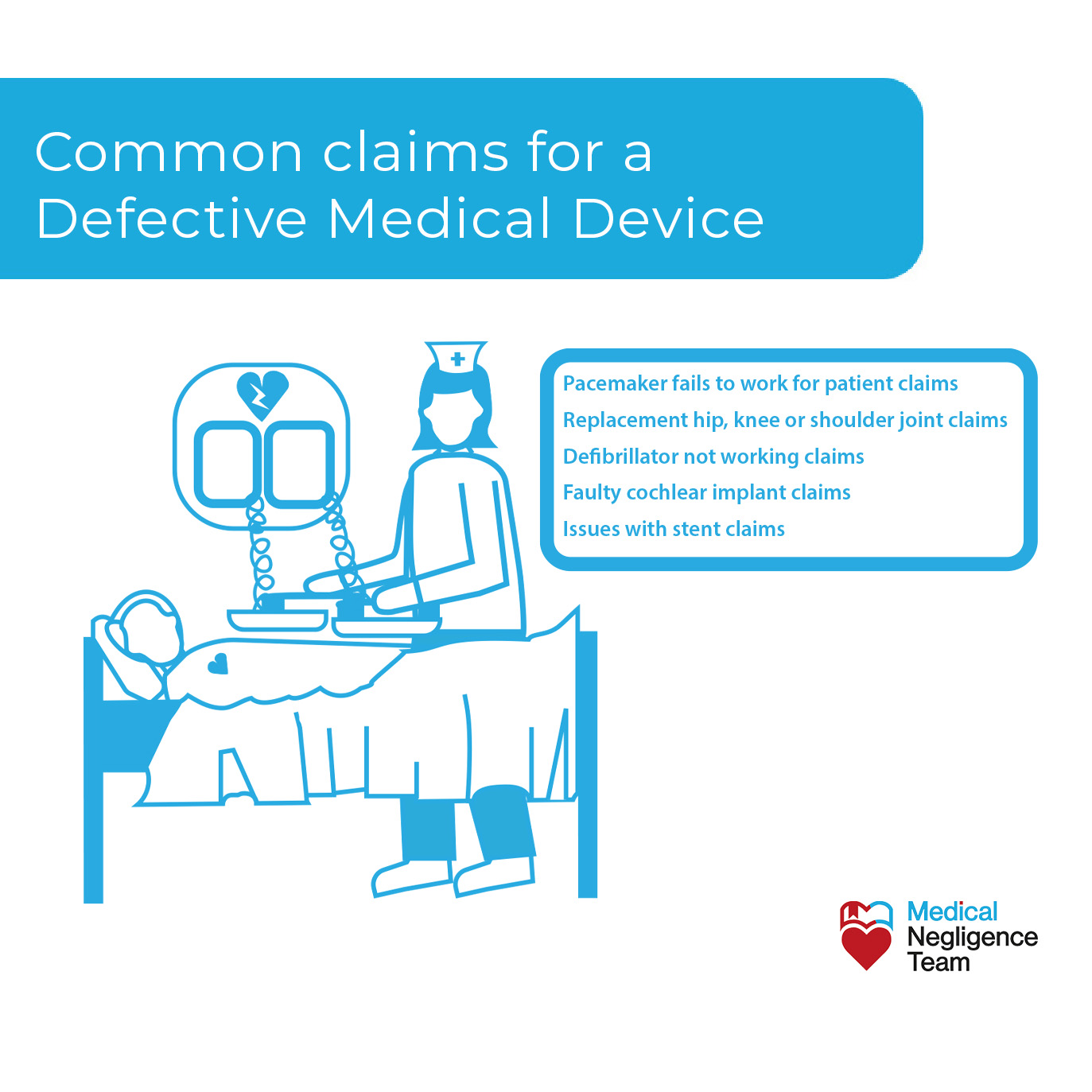
Pacemaker fails to work for a patient claims
When a pacemaker fails to work for a patient, they could suffer further heart issues, be vulnerable to heart attack and could suffer pain and other problems.
The heart surgeon implants a pacemaker to improve the quality of a patient’s life. When the defective pacemaker fails to work, the life of the patient could be put in unnecessary danger.
A pacemaker may fail to work:
The effects of a faulty pacemaker device:
You may have a medical negligence claim if you are fitted with a defective medical device, such as a pacemaker.
Replacement hip, knee, or shoulder joint claims
Replacement hip, knee, or shoulder joint claims are very common medical negligence in cases of defective medical devices. The patient may need a replacement joint and suffer due to the defective medical device, which could be clear medical negligence.
Issues with a defective replacement hip, knee or shoulder joint:
A faulty replacement hip, knee or should joint can cause:
A No Win No Fee medical negligence claim can seek damages for the effects of the faulty replacement hip, knee, or shoulder joint.
Defibrillator not working claims
Defibrillator not claims are for the effects of the faulty medical device when fitted in a patient with cardiac issues. The defibrillator can help the person fitted with one to lead a normal life, and it should kick into action when needed.
A defibrillator may not work because:
When a defibrillator does not work, it can cause:
A faulty defibrillator could put a patient’s life in danger, and they may have a compensation claim for medical negligence.
Faulty cochlear implant claims
Faulty cochlear implant claims are due to the effects of hearing aid devices that do not work and cause suffering to the patient. A cochlear implant should improve hearing and reduce the impact of ear complaints.
A faulty cochlear implant can be due to:
The effects of a defective cochlear implant are:
You could have a medical negligence claim if you are fitted with a defective cochlear implant.
Issues with a stent claims
Issues with a stent can cause further suffering for the patient with unresolved pain and an increased likelihood of heart attack or stroke. The stent has improved the lives of many patients, but a defective medical device can have devastating effects.
A stent may be faulty due to:
The effects of a stent not working can be:
A defective medical device like a stent can cause damage to the patient and fail to resolve the issue they have with their health.
Defective medical devices cause pain, further health issues and the need for a patient to have more surgery and could cost a patient’s life.
Your No Win No Fee medical negligence solicitor can look at your defective medical device claim and seek compensation for the effects on your health.
Our Process
Our team members have a higher career win rate with a 75% success rate on NHS letters of claim, compared to an industry average of 54.5%.
Enquiry
The first step is to get in touch and tell us what went wrong. It’s free and easy. Call our 24-hour helpline: 0800 246 1122 or request a callback here.
Medical Evaluation
Once you have spoken with our team we’ll let you know how we can help. Typically the next step is to obtain your medical records for us to review.
Legal Letter
Once all your medical records have been received they will be reviewed by a medically & legally qualified member of our team. If there is evidence of negligence we will send a letter of claim to the negligent party outlining your compensation claim.
Compensation for defective medical device claims
You can seek compensation for the effects of a defective medical device in amounts from the low £10,000s to over £10 million in some cases. You could suffer the medical negligence of a defective medical device, such as a faulty pacemaker or cochlear implant, with many effects on you, and you can claim for those effects today and in the future.
The compensation awarded when a stent does not work or the defibrillator causes further cardiac issues depends on several factors, such as how much discomfort and disruption you experience in your life today and in the future.
Claims sometimes see high awards, such as when the patient suffers pain and discomfort and needs further surgery. In some cases, the patient may pass away due to the defective medical device and their dependents could have a fatal medical negligence claim.
Compensation for defective medical device claims can see awards of:
All amounts are approximate and are only a guide to what is possible in post operative haemorrhage negligence claims. Figures can be high in some claims as you or a loved one could need long-term care and may face medical bills for life. You may be able to claim for these care expenses and the medical costs in the future.
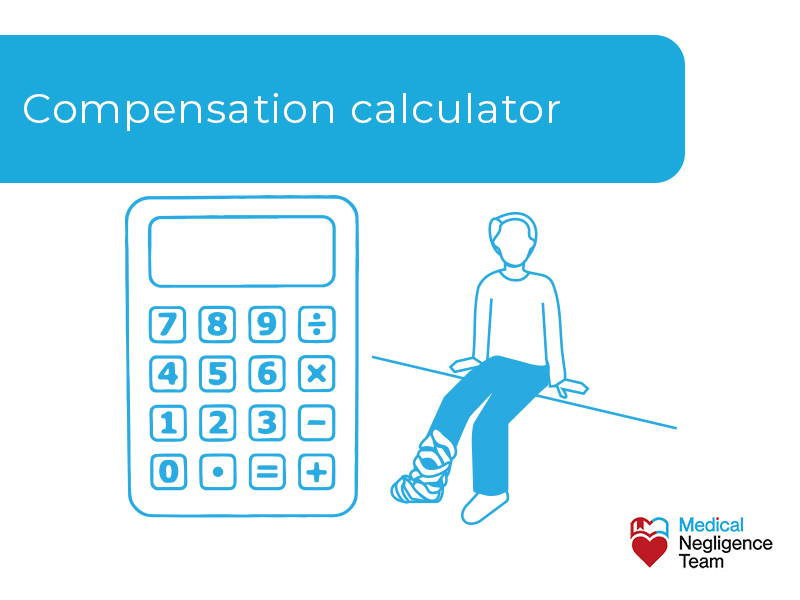
You may be able to claim for these care expenses and the medical costs in the future with a medical negligence compensation case.
As in all medical negligence claims, each case is dealt with on merit and how much the patient suffers due to the defective medical device.
A No Win No Fee medical negligence solicitor will be the one to advise you on a defective medical device compensation claim.
A Medical Negligence Team solicitor will know from experience what your case may be worth and how to make a successful compensation claim.
Who is eligible for compensation in a medical negligence claim?
The patient who suffers pain, disability, or anxiety and sees their condition getting worse due to medical negligence may be eligible to claim compensation.
A defective medical device can cause pain and anxiety and have you facing further medical treatment, such as surgery, and you may be able to claim compensation.
The medical negligence of fitting a defective medical device has made you ill; it may affect your ability to lead a normal life, and you could need further medical treatment. You can claim compensation for the effects of the medical negligence on your life today and in the future.
You, the patient, are the one to suffer due to the damage to their hip, knee and shoulder joints or the discomfort from the constant noise in their ear. A defective medical device may cause a condition to get a lot worse or even put your life in danger.
Medical negligence may lead to psychological trauma, unnecessary pain, and disability. The patient, though, may be unable to claim due to the effects of the medical negligence, and their dependants may be able to make the compensation claim.
The loved ones in a medical negligence case are known as ‘dependents’ and can be:
When you have a medical negligence claim due to a defective medical device, your No Win No Fee medical negligence solicitor can help make the case for compensation.
What can you claim for in defective medical device compensation?
You can claim for any damages that occurred when you sue for defective medical device compensation.
There are two types of compensation damages due when suing for any type of medical negligence, such as in a defective medical device claim:
You deserve compensation to cover all losses, including loss of life for dependents, medical costs, and long-term care needs.
You can claim medical negligence compensation when you or a loved one experiences unnecessary suffering due to a defective medical device such as a faulty defibrillator or a buzzing cochlear implant.
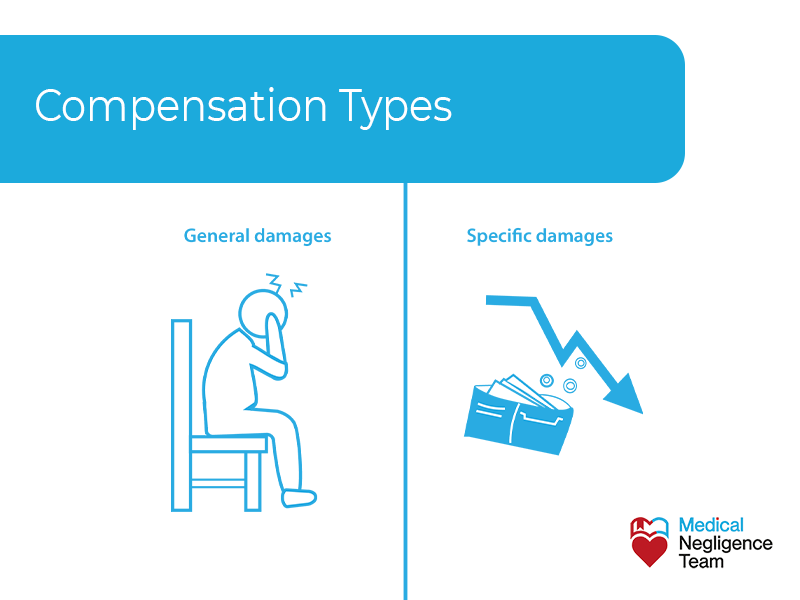
How to make a claim for medical negligence
The steps involved in making a claim for medical negligence go from seeking medical advice to issuing court proceedings when you suffer due to the fitting of a defective medical device, such as a hip replacement joint or cochlear implant.
The steps are a part of any successful compensation case, and settlement can happen at any stage in the process.
Your medical negligence solicitor will do the rest when you follow the steps correctly and gather all the facts and figures.
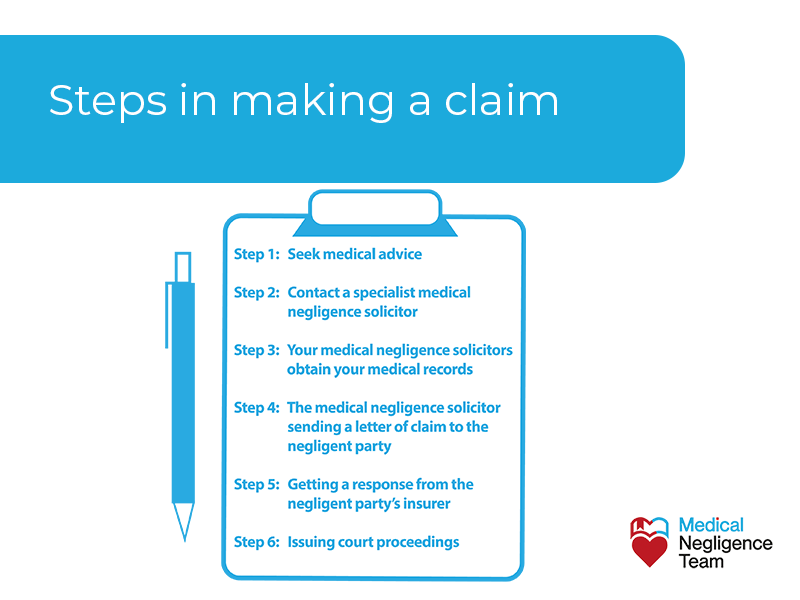
Who can be responsible for defective medical devices?
The NHS Hospital where you had the defective medical device fitted could be responsible for the medical negligence in your care. The hospital should have a system of NICE guidelines to check the medical device before, during and after implanting it in the patient.
The manufacturer may be liable for the faulty medical device in some cases, but your No Win No Fee medical negligence solicitor can easily discover where the fault lies when examining your compensation claim.
Those responsible for a defective medical device claim could be:
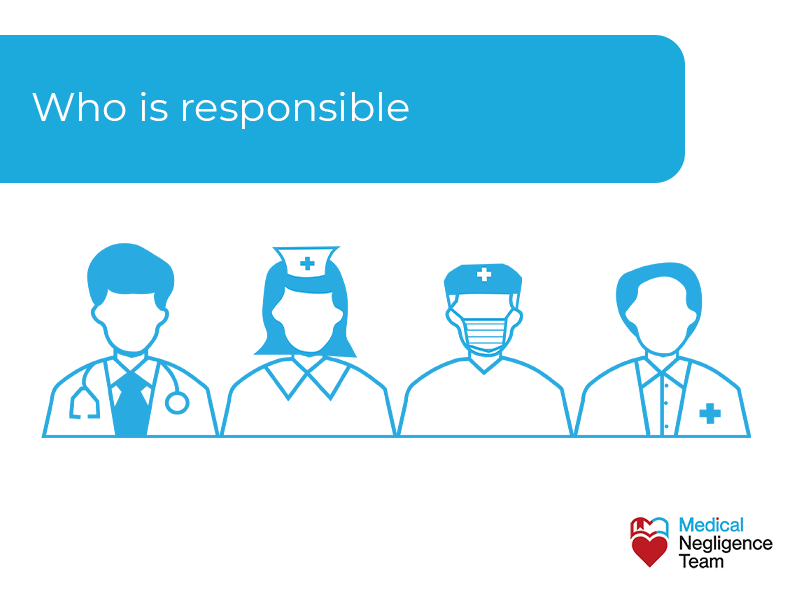
Medical negligence is treatment below an acceptable standard by a medical professional. When the NHS hospital or medical professional does not provide you with a duty of care, you could have a medical negligence claim.
You can claim medical negligence compensation for the effects of the defective medical device on your life today and in the future.
Our Process
Our team members have a higher career win rate with a 75% success rate on NHS letters of claim, compared to an industry average of 54.5%.
Enquiry
The first step is to get in touch and tell us what went wrong. It’s free and easy. Call our 24-hour helpline: 0800 246 1122 or request a callback here.
Medical Evaluation
Once you have spoken with our team we’ll let you know how we can help. Typically the next step is to obtain your medical records for us to review.
Legal Letter
Once all your medical records have been received they will be reviewed by a medically & legally qualified member of our team. If there is evidence of negligence we will send a letter of claim to the negligent party outlining your compensation claim.
How long do I have to make a claim for medical negligence?
You have three years to make a claim for medical negligence. All medical negligence claims are subject to limitation periods.
For example, in England and Wales, medical negligence cases for a defective medical device must generally be brought and court proceedings issued within three years of the injury or three years of knowledge of the facts giving rise to the claim.
If someone has passed away due to a breach of duty of care by a medical professional, it is the date of death if the limitation period has not expired by that time.
Children not under a disability typically have until they reach 21 to start a medical negligence claim or court proceedings.
Persons with a disability, who lack capacity, are not subject to any limitation period.
Will I have to go to court with a medical negligence claim?
No, you are very unlikely to have to go to court with a medical negligence claim.
The majority of cases are settled well before there is a need for court action, and NHS Resolution will see most cases are dealt with, in conjunction with your solicitor, before a referral to court by either side.
The effects of a defective medical device can cause you and your family a lot of distress. If you discover the issues caused by the defective medical device could be due to medical negligence, you will want answers and compensation for the damages suffered.
Your solicitor will want to keep the medical negligence claim out of court and get it settled in your favour as quickly as possible.
If your claim is one of the very few cases that do go to court, it will be handled by your No Win No Fee medical negligence solicitor.
Using a No Win No Fee medical negligence solicitor
Using a No Win No Fee medical negligence solicitor is the only way to a successful compensation claim for medical negligence. Your No Win No Fee medical negligence solicitor will not charge you for a claim you do not win.
The medical negligence solicitor will have experience dealing with the NHS and insurance companies when handling any medical negligence claim. They will know the effects of a defective medical device, the history of similar cases and who is responsible for the medical negligence.
Your No Win No Fee solicitor will handle your case when you suffer from a defective medical device and know how to make it a successful compensation claim.
Always have a fee agreement in place before engaging a medical negligence solicitor. If they start talking of a ‘win fee’ or a ‘success fee,’ you should walk away. The negligent party insurers should pay all fees.
The medical negligence solicitor should also operate a 100% Compensation Guarantee scheme. When you win the case, all the money awarded should go to you, not the solicitor.
You are the one who experienced the medical negligence, and you deserve the compensation to get your life back to normal.
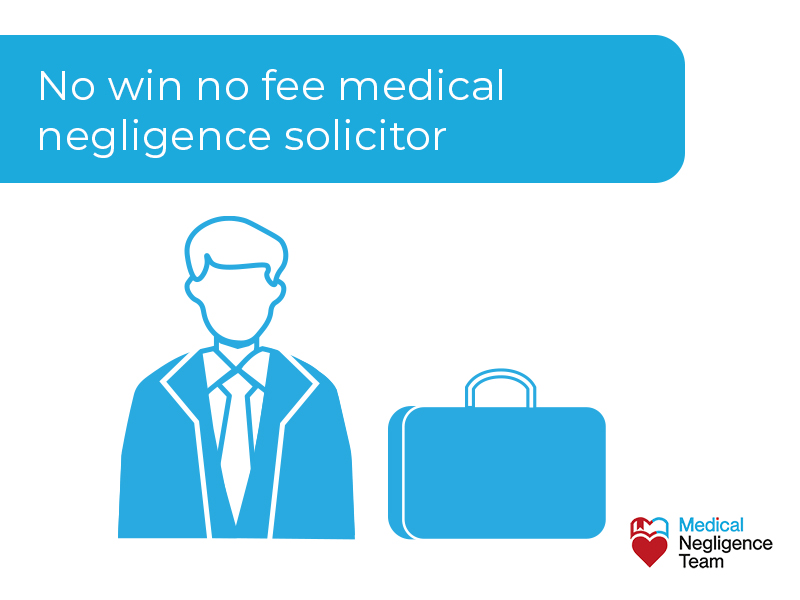
Contact The Medical Negligence Team
Contact the Medical Negligence Team today to discuss your defective medical device claim. You suffered from the effects of the defective medical device, like a badly designed stent or faulty new replacement joint, and you may be able to claim compensation.
At the Medical Negligence Team, we fight every compensation claim on a No Win No Fee basis, and you will not be out of pocket for an unsuccessful claim. We have both the legal and medical experts to guide you along the steps to a successful claim for compensation.
We have a very high success rate and a reputation for a speedy and successful resolution to medical negligence claims for defective medical devices.
You may have a compensation claim if you have a defective medical device fitted and suffer the effects today and in the future. Our 100% Compensation Guarantee puts all the money you win for the defective medical device claim into your pocket.
Contact us at the Medical Negligence Team, and let us handle your defective medical device compensation claim.

